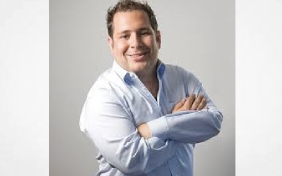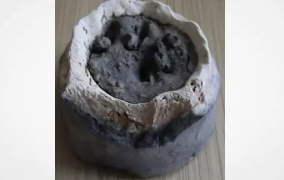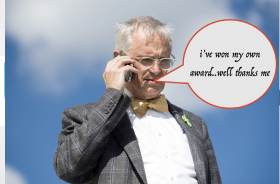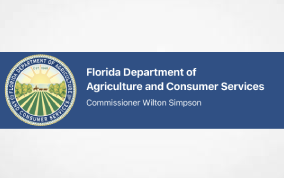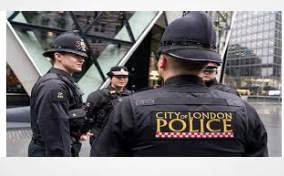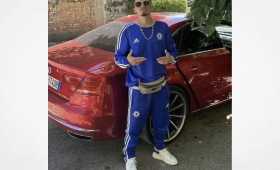Mississippi Today reports
Mississippi Today political reporter Geoff Pender talks with Rep. Lee Yancey, who has led the House’s efforts to pass a medical marijuana program. Yancey detailed legislative negotiations about the marijuana program, as well as an impasse lawmakers have reached with Gov. Tate Reeves over several details of the proposal.
Here’s the introduction ( transcript)
Listen at. https://mississippitoday.org/2021/10/18/podcast-lee-yancey-medical-marijuana/
Adam Ganucheau: Welcome to The Other Side, Mississippi Today’s political podcast. The Other Side lets you hear directly from the most connected players and observers across the spectrum of politics in Mississippi. From breaking news to political strategy to interviews with candidates and elected officials, we’ll bring you facts, perspectives, and context that helps you cut through the noise and understand all sides of the story.
Geoff Pender: I’m Geoff Pender, political reporter at Mississippi Today. We’re joined today by Representative Lee Yancey. Representative Yancey is from Brandon. He represents District 74. I believe he has represented that district since 2020. Former longtime state Senator as well, I’ve known Representative Yancey for a long time, and it’s still hard not to call him Senator Yancey. Anyway, Representative Yancey is chairman of the House Drug Policy Committee. And as such, he has been a busy man this summer. We’ve recently heard on this podcast from Senator Kevin Blackwell, who’s one of the lead drafters and negotiators of the medical marijuana bill.
Representative Yancey is his counterpart in the House. Y’all have been working closely together. Representative Yancey, Chairman Yancey, welcome. Thank you for coming on today.
Rep. Lee Yancey: Thanks, Geoff. It’s great to be here with you.
Geoff Pender: We’ll get to it. This past week in talking with you and others, there’s been some, I guess you would say, big news on the I guess everyone anxiously awaiting whether there’s going to be a special session for medical marijuana.
Anyway, I guess things are maybe looking a little doubtful or hit some snags this week. Give us an update on where things stand.
Rep. Lee Yancey: Sure. It’s just the nature of politics. And as most of you know, politics comes from a Greek word, “poly,” meaning “many,” and “tics,” meaning “blood-sucking parasites.” So here we are being true to our nature.
We have been working very hard on medical marijuana. Bill, Senator Blackwell and I he’s been working since for probably a year now. And I just joined late in the game, back in late June, early July. And so I had a lot to learn, a lot of catch up to do, and I just looked over Senator Blackwell’s shoulder. And I had my ideas as to what a medical marijuana program should look like, and so did he. And together we have worked hard and come forward with this bill, and after much deliberation and meeting with House leadership and Senate leadership and then meeting with our respective caucuses and then meeting with Democrats as well, we finally have a bill that we’re ready to come forward with. And I believe it was September 24 when we notified the governor that we were ready for him to call a special session based on the fact that he had said, “When the House and the Senate are in agreement, then I will call a special session.”
And so at that time, the governor’s staff went over the bill as they should. And they came back to us with 11 things that they wanted us to change. And we looked at those 11 things, and we agreed that many of those things could be changed and should be changed. And we did change I think eight out of 11 things, and some of them relatively minor things but things that improve the bill. And we appreciated the governor’s perspective and included those things in the bill, and sent that back to him. And of course we didn’t give him a hundred percent of what he wanted. And so they kept the bill another week and looked over and thought about what was going on. And of course they have a lot more going on than just this bill. I mean, this has been my world, but it’s not necessarily everyone else’s world.
And so then they came back to us about a week later basically with an ultimatum. “You know, if you want to have a special session, then you will change this 3.5 grams to 2.8 grams for everyone except doctors.” So for your practitioners that we defined as physicians, nurse practitioners, physician’s assistants, optometrist, the governor said only the physician will be able to certify someone for 3.5 grams of smokable flower, and the rest would only be able to certify someone for 2.8 grams. And so we have been sort of fighting this similar battle on different fronts for several weeks and for a number of reasons, we didn’t want to do that. Number one, this becomes a scope of practice issue that we deal with in every session, whether it’s doctors versus nurse practitioners or it’s ophthalmologists versus optometrists.
And it’s one group wanting to have to increase the scope of their practice. And it’s another group trying to defend the scope, so that no one else can do what they do. ,And so this would have created a battles going on into the future for a decade. And we just thought all of these people can currently prescribe opioids, can prescribe anything, and they ought to be able to prescribe medical marijuana as well.
And so that was the first reason we didn’t want to change it. The second reason is that 3.5 grams is an industry standard throughout the medical marijuana industry; 3.5 grams is an eighth of an ounce. They work on the eighths. And so you can see some method to the madness when you look at our Mississippi Medical Cannabis Equivalency Unit, where we allow 3.5 grams of flower or one gram of concentrate or a hundred milligrams of THC infused in a product like an edible. And so if you change the 3.5 to 2.8, then you also in order for these other things to have the same amount, unless they’re only wanting to change the flower— and that was never made clear to us— you would have to also change the one gram of concentrate, and you’d also have to change the 100 milligrams of THC infused product.
And so, you know, that made that inconsistent. A third reason why it was unworkable was that law enforcement would have no way of knowing if they stopped someone who was on their way home from a dispensary for speeding, and they pulled him over and they happened to see their medical marijuana right there in the console. If a person has a valid medical marijuana card and they have the allowable amount or less, then they are deemed to be a participant in the medical marijuana program. So if someone had between 2.8 grams and 3.5 grams, the law enforcement officer would have no way of knowing if this were prescribed by a physician or by a nurse practitioner or by physician’s assistant or by an optometrist.
And that created problems. And we felt like it needed to be consistent across the board as to what the certifying amount would be, and since this was a standard with 37 states and the District of Columbia, we felt like Mississippi ought to have the same standard. Now, the fourth reason that we didn’t change it is because Mississippi has something that none of the other states who’ve passed medical marijuana had.
We have had a ballot initiative where medical marijuana was put on the ballot, and 62% of the people, 61 point something percent of the people checked, “Yes, I want to have a medical marijuana program.” Then question two was, “If you want to have a program, do you want to have 65 or do you want to have 65A?” Now 65 was the ballot initiative program that would have been in our constitution, and 65A was the legislative version. And of those folks, 58% chose option A, the 65 program.
Hope that wasn’t confusing. They chose the first option, which was the ballot initiative option. Twenty-one percent chose 65A, which was a legislative option. Twenty-one percent did not vote at all because they probably didn’t, couldn’t make themselves vote for a medical marijuana program. And then there was probably another thousand people who voted for both programs. And I’m really concerned about them, and we need to get them in to see some psychiatrists, but they voted for both programs.
But of the people who voted for either option one or option two, 74% voted for option one. That’s where you get to 74. However you look at it, it was an overwhelming majority. And if you were to get 58% or 62% in a governor’s race, you got a landslide. It was a mandate. And so we go into this. That happened last November. In January Speaker Gunn called me into his office, and he says, “Lee, I’ve got a chairmanship for you if you want it.” I said, “I want it. What is it?” And he said, “Drug policy.” I said, “Oh my goodness.” And I said, “Well, at least medical marijuana is out of the way. I won’t have to deal with that. I’ll be dealing with kratom, and I’ll be dealing with Uniform Controlled Substance Act. And I won’t have to deal with medical marijuana.” But as you know, in May, the Supreme Court threw it out on a technicality.
And so then it fell right back into our laps. And so I began working on this with Senator Blackwell back in the summer. So other states did not have this mandate from a ballot initiative, and we do. And I feel like if we don’t present something to the people of Mississippi, that is at least similar to what passed in the ballot Initiative 65, then it’s going to either drive them to other states where they can get higher amounts. It’s going to drive them to the black market. It’s estimated Mississippi has a $700 million to $1 billion illegal marijuana black market right now. And if we could take a bite out of that and hurt them and put them out of business as much as we can, I think that’s a great thing. If we can get marijuana off the street, that’s a great thing. Because the thing about our product is it’s going to be tested. We’re going to make sure that doesn’t have any contaminants in it. It’s not going to have any fentanyl in it. It’s not going to have anything in it that can kill you.
So when people go to our dispensaries, it will be marked how much THC is in the product, how much CBD is in the product, and they’re going to know that what they’re getting is exactly what they thought they were getting. And so that’s the fourth reason, the ballot initiative. We need to put something in place that is similar to what passed with Initiative 65. So for all those reasons, we felt like we have got one of the best bills in the country. We’ve been told we have one of the best bills in the country. It’s a Frankenstein bill. We pulled it from a lot of different states. There are portions of it from Alabama and portions of it from Missouri and portions of it from different places.
But we took the best practices, and we talked to a lot of people and did a lot of research and feel like we’ve come up with a good bill. We thought the amount of marijuana that was allowed in Initiative 65 was a little bit too much.
